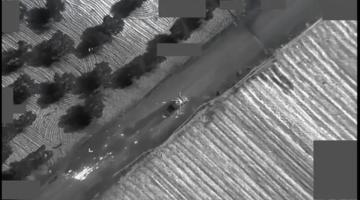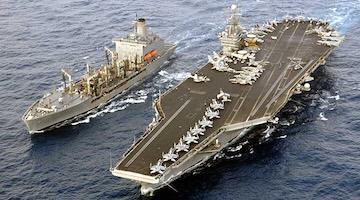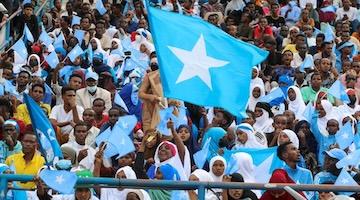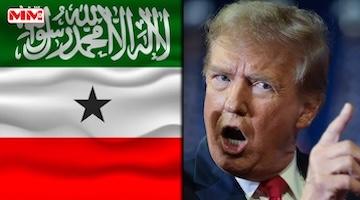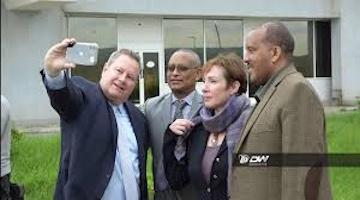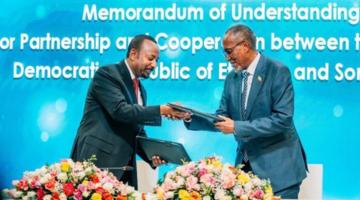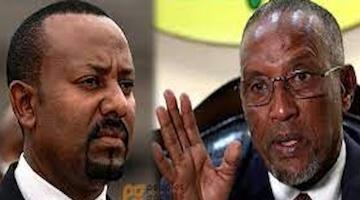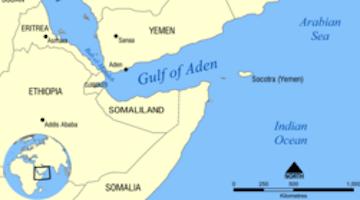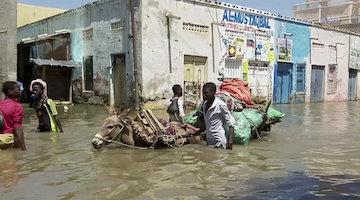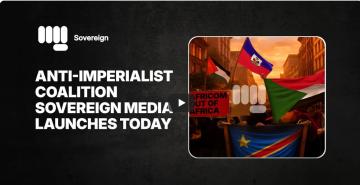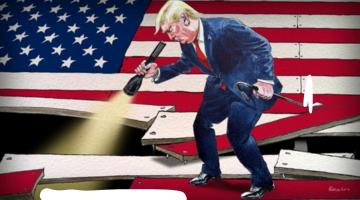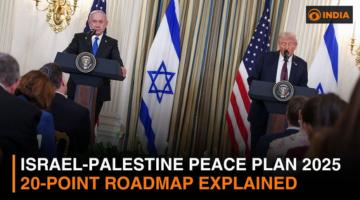Somalia’s recognition of SSC-Khaatumo as its sixth Federal Member State (FMS) has radically shifted the Horn of Africa’s geopolitical dynamics, with implications for Israel, Palestine, and Ansar Allah (“the Houthis”).
The geopolitical dynamics of the Horn of Africa region are always volatile, but more so now than ever. The world’s attention is most drawn to the region by Ansar Allah’s disruption of crucial maritime routes in the Red Sea in support of Palestine and Donald Trump’s despicable proposal to remove and dump the entire population of Gaza in war-torn Sudan, Somalia, and/or Somaliland, the unrecognized Somali secessionist state.
Both the US and Israel have considered recognizing secessionist Somaliland as a state in order to turn it into a US/Israeli military enclave on the Gulf of Aden, near the mouth of the Red Sea and just across from Houthi-controlled Yemen. However, on April 14, when the federal government recognized SSC-Khaatumo as Somalia’s sixth Federal Member State (FMS), the formal boundaries of the secessionist state radically shrank to roughly 45% of what was the former British Somaliland. What will Israel and/or the US recognize now? A Somaliland with its territory cut in two? There is also nationalist resistance in northwestern Somaliland, where the people of Awdal region want to be part of the Somali nation.
I spoke to Dr. Abdirahman M. Abdi Hashi, senior advisor to Abdiqadir Ahmed Aw-Ali, the leader of the new regional state of SSC-Khaatumo, about the implications of Somalia’s recognition of SSC-Khaatumo.
ANN GARRISON: Dr. Abdirahman, tell us about the uprising in SSC-Khaatumo that led to its recognition as Somalia’s sixth Federal Member State on April 14th.
ABDIRAHMAN M. ABDI HASHI: The people of SSC-Khaatumo rose up at the end of December 2022, revolting against the oppression and subjugation of the Somaliland regime that began in October 2007. The Dhulbahante clan, who are the majority in SSC-Khaatumo, are proud and patriotic Somalis who strongly believe in the unity and sovereignty of Somalia. They do not want to be part of secessionist Somaliland, which is essentially a project of the Isaaq clan based in its capital Hargeisa.
In August 2023, the blue Somali flag was raised in Las Anod, the capital of SSC-Khaatumo, and its people announced their victory over the secessionist forces who had waged a full-scale war against them since February 6, 2023. For six consecutive months, Somaliland forces indiscriminately shelled the city of Las Anod, destroying schools, mosques, hospitals, and residential buildings and displacing over two hundred thousand people. Federal recognition came after the people of SSC-Khaatumo had successfully administered their region for nearly two years.
The people of SSC-Khaatumo have a history of fiercely resisting British colonialism under the leadership of Muḥammad ibn 'Abdallāh Hassan from 1899 to 1921. These fierce fighters were known as the Dervishes and renowned for their bravery. Drawing on that historical spirit of freedom fighting, the people of SSC-Khaatumo rejoined the Somali nation and were no longer dominated by Hargeisa.
AG: What about Awdal in northwestern Somaliland?
AMAH: The people of Awdal also want to be part of the Somali nation, not secessionist Somaliland. They are resisting administration by Hargeisa.
AG: Hargeisa is now claiming that SSC-Khaatumo has seceded from Somaliland, but Somaliland is not an officially recognized state that anyone could secede from. It’s not recognized by any of the 193 UN member states, while Somalia holds a UN seat and currently a seat on the Security Council. Only Taiwan, which is recognized by only 12 tiny states, recognizes Somaliland. Is there any legal forum where Somaliland might take its claim to SSC-Khaatumo?
AMAH: None whatsoever.
AG: Somaliland has long been a project of the right wing of the British government, which has been joined by the United Arab Emirates (UAE) and the right wing of the US. In the US, the ultra-right Heritage Foundation has long advocated recognizing Somaliland so as to turn it into a US military enclave on the Gulf of Aden, near the mouth of the Red Sea and just across from Yemen. Some of them claim to speak for Trump, saying he plans to recognize Somaliland soon, but Trump himself has not said anything to that effect.
Israel has also considered recognizing Somaliland, in hopes of both establishing a military base and dumping the people of Gaza there, a proposal that Trump also recklessly put forth. What is left for the US and Israel to negotiate with now that SSC-Khaatumo has become the sixth state of Somalia?
AMAH: Well, first of all, the idea of dumping Gazans in either Somaliland or Somalia is hugely unpopular and untenable because, for one, the Somali people of both Somaliland and Somalia are very, very pro-Palestinian. And neither state is prepared to suddenly handle a huge refugee population.
Somaliland would do anything for recognition, most of all by the US, and it’s been reported that Somaliland’s Foreign Minister, Abdirahman Dahir Adam, suggested he would agree to take the Gazan refugees, but he denied it, no doubt knowing how unpopular that would be in Somaliland, Somalia, and the rest of the world.
Second, regarding the issue of the US military base in Berbera Port, Somali President Hassan Sheikh Mohamud is the President of Somalia, whose UN-recognized borders include Somaliland. He has offered the US exclusive control of air bases and ports, including air bases in Balidogle and Berbera as well as the ports of Berbera and Bosaso, so the US doesn’t need to recognize Somaliland to expand its military presence here. Is mighty Hargeisa going to resist the US if it signs agreements with Mogadishu?
AG: It seems like a sad situation with Hargeisa and Mogadishu arguing about which has the authority to hand air bases and ports to the US.
AMAH: It is a sad situation, but you have to consider how greatly Somalia has been weakened and fragmented by decades of US intervention. In 2006 the US-backed intervention by Ethiopia, then led by the brutal Tigray People’s Liberation Front (TPLF), overthrew the Islamic Courts, which had managed to establish a welcome order after decades of conflict following the 1991 collapse of the Siad Barre government. They committed hair-raising atrocities, and the terrorist group al-Shabaab then emerged as a result.
Somalia has been struggling against al-Shabaab ever since, and the peacekeeping force created to fight them—AMISOM, which was rebranded as ATMIS, then AUSSOM—has essentially been a self-preserving force that does not really fight against al-Shabaab terrorist insurgents. It has the African Union brand, but it has been funded by the US and the EU. The Trump administration, however, abstained on the most recent reauthorization of a UN resolution to renew support, citing the mission’s failures and lack of financial transparency and leaving AUSSOM in limbo.
The multilateral forces have been well-paid by African standards, so they have had no reason to see the conflict end and every reason to see it continue. These so-called peacekeeping forces have even been arrested for selling arms on the open market.
In short, US intervention has had very long-term destabilizing consequences in Somalia. According to a 2023 report by Brown University’s Costs of War Project, the US has spent more than $2.5 billion to defeat al-Shabaab only to have the opposite effect, leaving Somalia more fragmented and weaker than ever.
So, ill-advised or not, Hassan Sheikh Mohamud’s offer to hand Somali air bases and ports over to the US can be understood as an attempt to keep the Somali nation together.
AG: Unity would seem to be a prerequisite of sovereignty.
AMAH: That is fair to say.
AG: The US and Israeli military are all but indistinguishable, but what about Israel’s aim of establishing a base on the Gulf of Aden? Wouldn’t that be unpopular given how pro-Palestinian the Somali people are?
AMAH: It would be very unpopular. That proposal would put Hassan Sheikh Mohamud in a very difficult place.
AG: Is there anything else you’d like to say?
AMAH: Somalia is of interest to all the world’s great powers because of its geostrategic location and its vast resources. Its northern coast sits at the mouth of the Red Sea. Fifteen percent of the world’s trade passes through the Red Sea, including 12 percent of its seaborne-traded oil, and 8 percent of its liquified natural gas shipments. It’s also close to the Strait of Hormuz, the world's most important oil transport chokepoint.
It has the longest coast in Africa, with huge fisheries and huge offshore oil and gas reserves. Its interior also holds large oil and gas reserves, as well as gold, diamonds, uranium, and other minerals.
These strategic military and resource interests complicate its politics, causing some global and regional players to support Somaliland secession and others to support its federal government and territorial integrity.
The UAE has military strategic interests but most of all economic interests which are best served by fragmenting the country and weakening the federal government. The UAE has been pushing hard for the recognition of Somaliland, spending tens of millions of dollars on lobbying and public relations campaigns, including campaigns on social media.
It wants to control several of Somalia’s ports—Bosaso in Puntland, Berbera in Somaliland and recently Kismayo in Jubaland. DP World, a UAE state corporation, bypassed the federal government to sign long-term agreements with the regional governments of Somaliland and Puntland to manage their Berbera and Bosaso ports, respectively, and thereby protect the trade dominance of its key port of Jebel Ali in Dubai.
Middle East Monitor reports that open-source intelligence and aerial imagery confirm that the ELM-2084 3D AESA multi-mission radar—manufactured by Israeli defense firm ELTA, a subsidiary of Israel Aerospace Industries—has been installed near Bosaso Airport, adjacent to the UAE-run Bosaso Air Base.
Another key player in Somalia is the government of Turkey, which also has geostrategic, economic, and political interests and competes with the UAE. Turkey is a very strong supporter of the federal government of Somalia and does not support the recognition of Somaliland. It has a long-term contract to manage both the port and the airport of Mogadishu.
Qatar does not have economic interests in Somalia, but they support the federal government, in part to minimize the destructive influence of their nemesis, the UAE. They build infrastructure and provide federal budget support.
Turkey and the UAE are fighting a proxy war in Somalia. Turkey is arming and training soldiers of the federal government, while the UAE is arming and training soldiers in Somaliland and two other federal member states, Puntland and Jubaland, in order to weaken the authority of the federal government.
President Donald Trump hasn’t recognized Somaliland despite the efforts of lobbyists in the US, the UK, and the UAE, and the Somaliland they championed ceased to exist when the nationalist forces of SSC-Khaatumo defeated the secessionist forces in 2023 and established effective administration of the region. The federal government of Somalia’s recognition of SSC-Khaatumo as its sixth Federal Member State formalized that reality.
Ann Garrison is a Black Agenda Report Contributing Editor based in the San Francisco Bay Area. In 2014, she received the Victoire Ingabire Umuhoza Democracy and Peace Prize for her reporting on conflict in the African Great Lakes region. She can be reached at ann@anngarrison.com. You can help support her work on Patreon.

